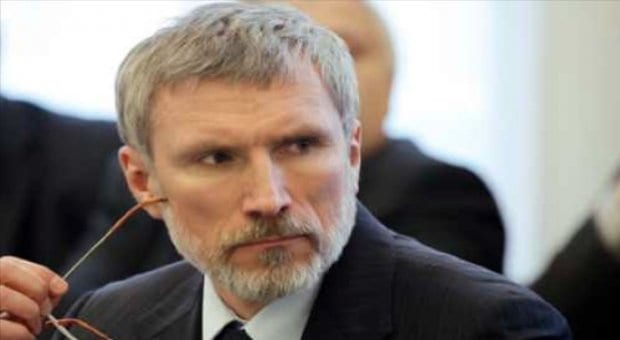In an interview with Russian news portal slon.ru, the author of new proposals to make “nontraditional sexual orientation” a basis for removing children from gay parents says homosexuals corrupt children and must not raise them.
“It occurred to me that since we have a law explicitly prohibiting the promotion of homosexuality among minors, the Family Code should be amended in such a way that if a husband or a wife professes a nontraditional sexual orientation, they should be deprived of their parental rights,” State Duma deputy Alexei Zhuravlev said in the Sept 5 interview, translated into English.
“The purpose of this would be to restrict the influence of such a person on his or her own children.”
Zhurvalev added, “The law will only function if information about the sexual orientation of the parent enters the public domain. And that’s fine. If a person conceals his orientation and hangs around in cellars, then those are his problems, he should remain alone with that sin. It has little effect on society.”
At the outset of the interview, Zhuravlev, who suggests that gay people make up five percent of the population, said government is not going to “hunt for these people” or task the police with “bringing them to light.”
Later, when asked by interviewer Olga Pavlikova if law enforcement agencies will get involved in determining who is gay, Zhuravlev replied, “If it becomes necessary, yes of course.”
“It is only where there are clear signs that judges are supposed to rule in favour of the parent who has the traditional sexual orientation,” he said. “For identifying such people, we have schools in which children study; there are various groups and clubs, so sooner or later it will become obvious anyway.”
Asked by Pavlikova if that means handing out questionnaires in schools or asking children about their parents’ social life, Zhuravlev said no one will be “going around asking questions.”
“We’re talking about clear signs of such an influence,” he said. “If there are clear signs, then the appropriate decision will be made. If a person conceals their identity, then they have had no influence on anybody, but if a person goes out with a placard and talks openly about their sexual orientation and propagandizes it, then obviously, that must be restricted.”
When Pavlikova pressed him for examples of the “clear signs,” Zhuravlev said he’s not a doctor nor an “expert on such matters” and advised her to talk to a sex therapist for that information.
Zhuravlev told Pavlikova he became aware of the “problem” of gay parents as he visited several regions across Russia, saying people “turned” to him because they “didn’t know what to do” about it.
He says he’s “sure” he’ll have the support of parliament for his proposed amendment to Article 69 of the Family Code.
Pavlikova also questioned Zhuravlev about the fate of a child who is being raised by a single mother who is gay.
He replied, “Of course she should definitely be deprived of her rights to the child. We shall see to it, have no doubts.”
Zhuralvev said he’s “deeply convinced” that gay parents do “much more harm” to children than if the children were placed in an orphanage.
He dismissed the notion that Russia will have thousands of children no longer in the care of their parents, saying the state’s primary task is to “raise a healthy generation.”
“It’s hardly likely that both parents will turn out to be homosexual,” he said.
Asked about the effect Russia’s anti-gay laws will have on moves to create a visa-free space between Russia and Europe, Zhuravlev said Europe is viewed as “Sodom and Gomorrah” and must not dictate how Russians should live.
“If negotiations about a visa-free space mean that our streets should have gay parades marching around, I am categorically against international relations of that kind and shall speak out against them.”


 Why you can trust Xtra
Why you can trust Xtra


